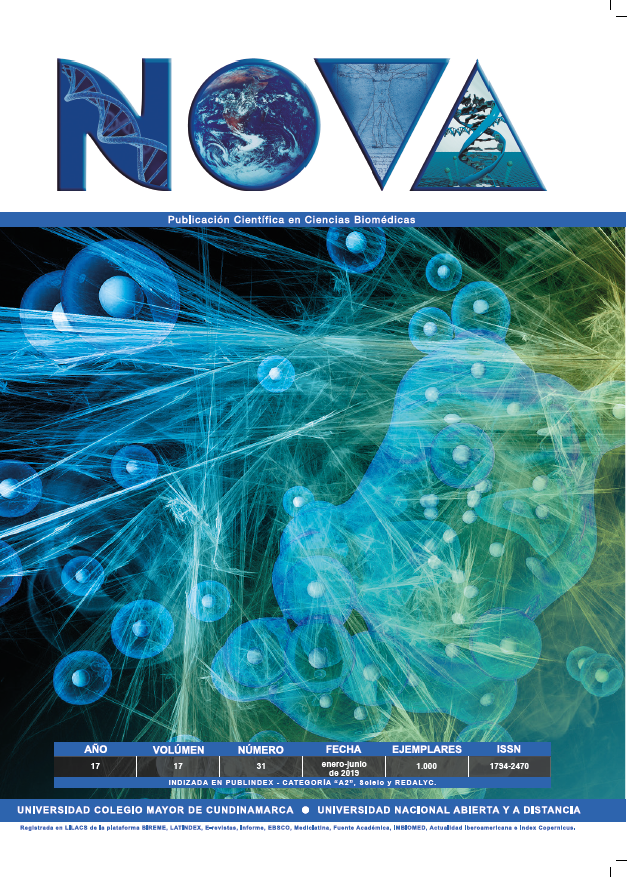NOVA por http://www.unicolmayor.edu.co/publicaciones/index.php/nova se distribuye bajo una licencia Reconocimiento No Comercial- Compartir igual
Así mismo, los autores mantienen sus derechos de propiedad intelectual sobre los artículos,
Declaración de privacidad.
Los nombres y las direcciones de correo electrónico introducidos en esta revista se usarán exclusivamente para los fines establecidos en ella y no se proporcionarán a terceros o para su uso con otros fines.
Effect of provenance and storage on coffee quality
Background. The quality of the coffee bean has been related to its origin, the agronomic management and the storage conditions. Objective. To determine the activity of the polyphenyl oxidase, the lipid content, the color and the organoleptic characteristics of coffees from 3 experimental substations. Materials and methods. A completely randomized design was followed in a 3x6 factorial arrangement (places of coffee origin and storage time respectively). Results. The activity of polyphenyl oxidase is greater in fresh coffee-for the three provenances. The coffee from Naranjal presented higher enzymatic activities than the coffees from the Supía and the Catalina substations. The analysis of variance showed the effect of provenance on the enzyme activity variable. The activity of the polyphenyl oxidase in the coffees studied decreases with storage time. The lipid content is lower at a lower height in the Catalina. All coffees were characterized as good quality at zero storage time; but the characteristics of aroma, intensity of aroma and body presented ups and downs in the different months of storage. Naranjal coffee, on average, obtained an acceptable rating throughout the six months of storage. Conclusions. Significant differences were found for the variables studied due to the effect of provenance and storage. The enzymatic activity of the PFO showed activation / inhibition stages, during the six months of storage.









